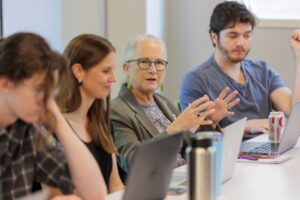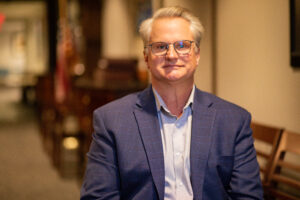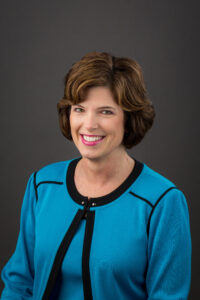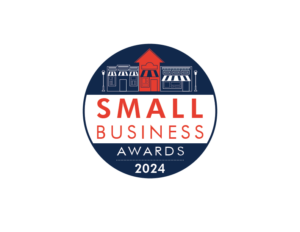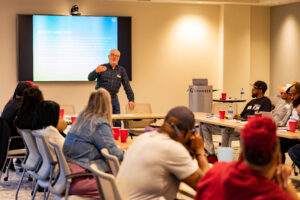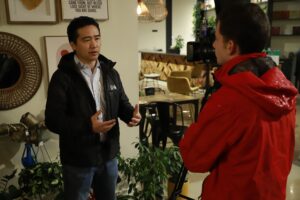As I began to frame my thoughts for this report, I was reminded of the Chamber’s effort to capture hopes and aspirations found in Chattanooga Climbs. These aspirations include increasing regional prosperity, delivering economic mobility for all and fostering inclusive economy through collaborative leadership.
Building off the Chattanooga Climbs strategic plan, I began my efforts at the Chamber as Vice President for Diversity and Inclusive Growth by focusing on the business case for racial equity. The business case for racial equity was first coined by a special report by the WK Kellogg Foundation published in 2018. The report elevated the economic cost of exclusion to the U.S. marketplace through institutional barriers. That said the report stated that economic growth is achievable through reforms in lending, education, criminal justice, housing, health disparities, business development and training.
Kellogg reported that the U.S. would witness an increase of $191 billion in food, $500 billion on housing, and $52 billion on apparel by making systemic modification in key institutions. In September of 2020, Citi reported that $16 trillion were lost over the past 20 years because of discrimination. Morgan Stanley mentioned that housing discrimination had taken its toll on the economy. They reported that 800,000 jobs with $400 billion in tax revenues were unrealized due to discrimination in the U.S. Brookings Institute added these collective actions resulted in white households amassing 10 times more wealth than that of Black household — a net worth of $171,000 for white families, compared to $17,150 for Black families. By intentionally modifying policies and institutional practices in the U.S., the country would close the wealth gap, improve business pathways and increase GDP by billions of dollars annually.
In addition to expanding economic participation, it’s essential to touch on the role of global diversity. According to the United Nations, Asia and Africa will represent 80% of the world’s population by 2050. Currently, they combine for between 71% to 75% of the globe’s inhabitants. Similarly, the U.S. is witnessing a rapid increase in racial diversity. This trend is slated to continue within the foreseeable future. Further, it is projected that the U.S. will become majority of color by 2050.
What does racial equity and global diversity have to do with the economic ecosystem of Chattanooga? The answer, a lot. The gradual browning of the United States when aligned with a globally diverse population creates a narrative for inclusive growth. An opportunity exists for Chattanooga to become the most inclusive growth economy in the world. The CEO Pledge for Racial Equity was as much about equity as economic prosperity, mobility and inclusivity. The CEO Pledge provides the foundation to attract talent, grow markets and draw innovation to Chattanooga and Hamilton County. This is accomplished by recognizing the economic importance of cultural competencies with customers, goods and services. A 2018 study by Harvard Business Review found that the most diverse companies were also the most innovative, allowing them to market a greater range of products to consumers. The study concluded that companies with higher-than-average diversity had 19% higher innovation revenues.
A McKinsey report looked at 366 companies throughout the Americas and U.K., and found a strong correlation between a company’s higher-than-average diversity (racial, ethnic and gender) and higher-than-average profits, compared to similar organizations. In 2019, CEO Action published a poll of signatory organizations and found that not only are they enacting their pledge commitments (93%) and reporting that has a positive impact (91%), but also driving the evolution of organizational D&I strategies. More than 60% are “doing something new as a result of their involvement with CEO Action,” and 91% are engaging their boards, driving increased accountability and visibility on this topic. To build on the CEO Pledge, the Chamber established a DEI Advisory Committee in August. The DEI Advisory Committee is a cross sector of stakeholders. The intent of the group is to drive best practices, advance data and share knowledge.
Yes, it’s a DEI conversation, but how can Chattanooga look at it as a business imperative that advances opportunity and builds an inclusive economy? What are some ways we are preparing for change through a racial lens? Not lost in the inclusive growth conversation is the opportunity for women, veterans, people who identify as LGBTQ and people with disabilities. How can Chattanooga become the destination for opportunity, possibility and inclusivity?
Earlier in my career, I worked for Philip Morris. My manager explained to me that the difference between Philip Morris and our number one competitor, RJ Reynolds, was that RJ Reynolds wanted to beat Philip Morris. Instead, Philip Morris sought to be the number one consumer goods company in the world. This represents two different mindsets.
On the misperception that DEI represents a gain for some and a lost for others, I am reminded of my father. A U.S. Marine and chef, he would say, “if you want to feed more people you increase the amount of the ingredients.” I think in some ways, we have that opportunity to be an inclusive growth economy that seeks to achieves similar outcomes for Chattanooga and Hamilton County. It’s an opportunity to grow economic participation that’s central to the work of the Chamber.
At the Chamber, we’re creating an infrastructure through diversity and inclusion to drive the business case for mobility, prosperity and collaborative leadership. Our partners include corporate members, leaders and managers who embrace all diverse communities in our effort to become an inclusive growth economy.
Originally published as a transcript via American Diversity Report.
Read the full transcript, here.
Author Bio:
Lorne Steedley serves as Vice President, Diversity and Inclusive Growth at the Chattanooga Area Chamber of Commerce.
